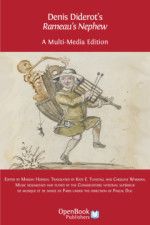Green, Gold, Diamond, Black – what does it all mean?
There’s a lot of jargon surrounding Open Access publication, and as with all jargon it can confuse and obfuscate. Here is a simple glossary:
| Diamond / Platinum | Immediate Open Access publication by the journal or book publisher without payment of a fee. Copyright may be retained by the author and permission barriers to share or reuse are generally removed. OBP fits this description: our authors retain their copyright, and we recommend this as best practice. We recommend a CC BY licence for all our books, unless an author chooses a more restrictive licence. |
| Gold | Immediate Open Access publication by the journal or book publisher. In some cases, a fee is charged. Copyright may be retained by the author and permission barriers to share or reuse are generally removed. |
| Bronze | The content is free to read and/or download on the publisher’s website, but it is not published under an open licence that permits sharing or reuse. The publisher is able to withdraw access at any time. This form of so-called ‘Open’ Access is often used to make content free to read for only a brief period, perhaps immediately after publication or in response to a catastrophic event such as the COVID-19 pandemic. However, since there is no open license it is not, in fact, Open Access at all. |
| Green | A version of the publication is archived online, e.g. in a repository. It does not include any of the work typically carried out by the publisher, such as e.g. copyediting, proofreading, typesetting, indexing, metadata tagging, marketing or distribution. It is usually not listed on the publisher’s website. It can be freely accessed but sometimes only after an embargo period, and there can be barriers to reuse. The author usually does not retain the copyright. |
| Black | A publication that is not openly licensed, or for which reuse rights have not been granted, which is shared online illegally (e.g. via Sci-Hub). |
| Hybrid | ‘Hybrid’ is usually applied to journals. A hybrid journal is a subscription journal in which some articles are made Open Access on payment of a fee. This model has attracted particular criticism for its expense and its vulnerability to abuses such as ‘double dipping. Some book publishers offer chapter-level Open Access, particularly for collected and edited volumes. These are sometimes referred to as ‘hybrid books’. |
| Gratis | Open Access that is free to read, but there are barriers to reuse. |
| Libre | Open Access is free to read and permission barriers are generally removed. |
As you can see, some of these definitions overlap. Some people prefer other terms, e.g. rather than ‘Diamond’ or ‘Platinum’ some people prefer ‘Universal’ OA, and ‘Green’ is sometimes called ‘Secondary’ OA. Instead of ‘Gold’ some prefer ‘Born’ OA, and others assume that ‘Gold’ OA necessarily involves the payment of a fee, which is not always the case. This proliferation of terminology underlines the point that there are several models for Open Access, and some enable greater access than others.
In our view, the purpose of Open Access is to make work available as widely as possible, with as few restrictions as possible, so that knowledge is easily accessible for all. Models that flip the costs onto the author’s side, that delay or time-limit accessibility, or that make it difficult for a work to be widely shared and used, are not compatible with Open Access as we believe it ought to be. Although restrictions such as embargo periods might be useful in the short term to enable a transition to Open Access, they should not, in our view, form the basis of a long-term Open Access strategy.
For more posts that cover the basics of Open Access, see:
- What should I ask a publisher about Open Access?
- APCs, BPCs, can I have some money please – who pays for OA?
- Copyright and licensing – what do I need to know?
- Reputation, reputation, reputation – quality control and reward systems
- Further reading
This blog post is part of a series for academics who want to find out more about Open Access. Click here for the other posts.
This post was updated on 09/10/19 to include the definition of Bronze OA, and on 17/10/19 to make minor improvements to the definitions of Gold and Green OA. It was updated on 15/07/20 to improve the definitions of Bronze OA and Black OA, and to add more information to the definitions of Green OA and Hybrid OA. It was updated on 11/08/20 to clarify the issue of copyright in Diamond and Gold OA. Thanks to Danny Kingsley, Ros Pyne, Graham Stone and Ross Mounce for the conversations that led to these updates.
Photo by Aaron Burden on Unsplash



